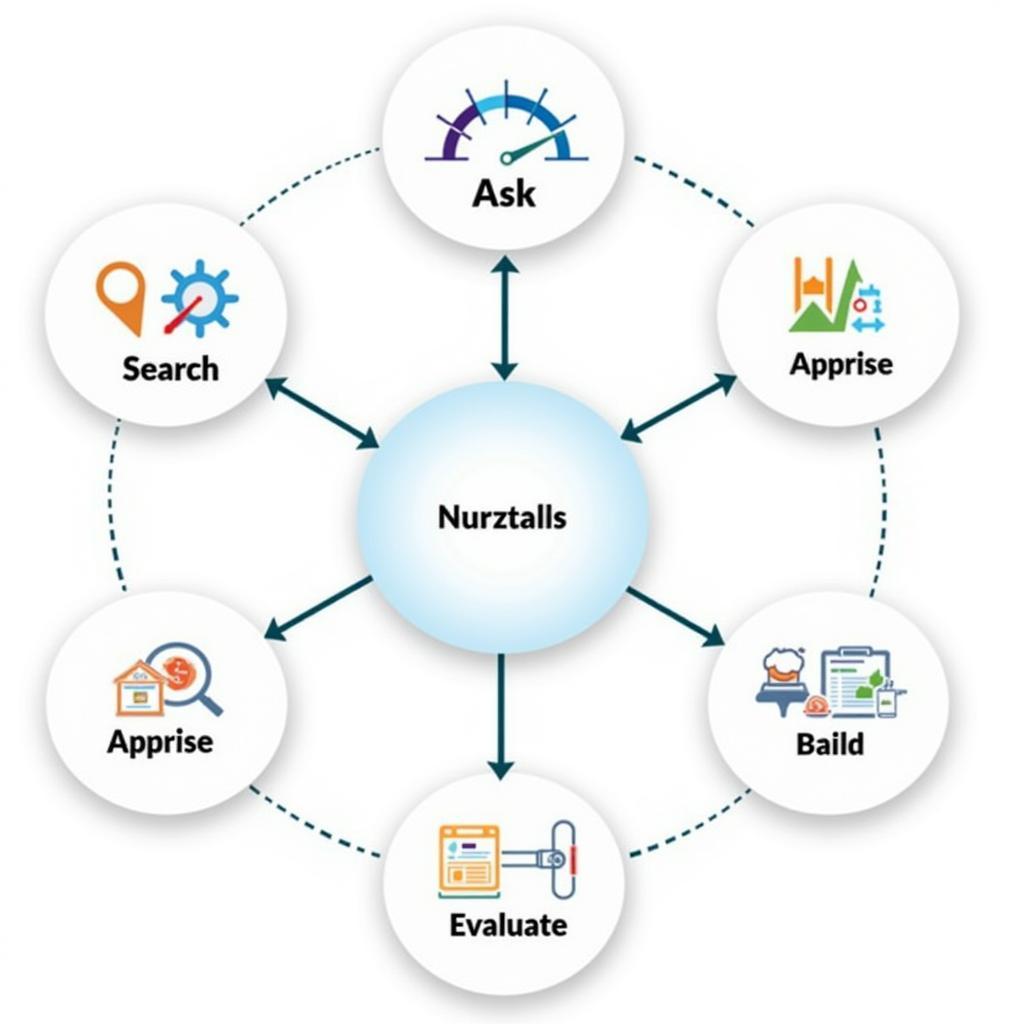Nursing research plays a vital role in shaping modern healthcare by providing evidence-based solutions to improve patient outcomes and advance the nursing profession. Understanding nursing research is crucial for all nurses, from students to seasoned practitioners, as it empowers them to deliver safe, effective, and patient-centered care. This article delves into the importance of understanding nursing research and how it contributes to building an evidence-based practice.
What is Nursing Research and Why is it Important?
Nursing research is a systematic inquiry that aims to generate new knowledge or validate existing knowledge about nursing practice, education, administration, and informatics. It encompasses various methodologies, including quantitative, qualitative, and mixed-methods approaches, to explore and address critical issues within the nursing realm.
The significance of nursing research lies in its ability to:
- Improve Patient Outcomes: By identifying effective interventions and best practices, nursing research directly contributes to enhancing patient care and safety.
- Advance Nursing Practice: Research findings guide the development of new nursing theories, models, and interventions, elevating the profession’s scientific foundation.
- Empower Nurses: Understanding research enables nurses to critically evaluate existing practices, identify research gaps, and participate in research activities, ultimately fostering a culture of inquiry and innovation.
How to Build an Evidence-Based Nursing Practice
Building an evidence-based nursing practice involves a systematic approach to integrate the best available research evidence with clinical expertise and patient values. Here’s a step-by-step guide:
- Ask a Clinical Question: Begin by identifying a specific clinical issue or question that requires clarification or improvement. Frame the question in a clear and concise manner using the PICO format (Patient, Intervention, Comparison, Outcome).
- Search for Evidence: Utilize reputable databases such as PubMed, CINAHL, and Cochrane Library to conduct a comprehensive search for relevant research articles, systematic reviews, and clinical guidelines.
- Critically Appraise the Evidence: Evaluate the quality and validity of the selected studies using established appraisal tools and frameworks. Consider factors such as study design, sample size, bias, and statistical significance.
- Integrate Evidence with Clinical Expertise and Patient Values: Synthesize the research findings with your clinical judgment, experience, and the unique preferences and values of your patients.
- Evaluate the Outcomes: Monitor the effectiveness of the implemented changes and make necessary adjustments based on the observed outcomes. Document the entire process to share your findings and contribute to the growing body of evidence.
 Steps to Evidence-Based Nursing Practice
Steps to Evidence-Based Nursing Practice
Overcoming Barriers to Evidence-Based Practice
Despite its importance, implementing evidence-based practice in nursing faces various challenges, including:
- Lack of Time and Resources: Nurses often struggle with heavy workloads and limited access to research resources, hindering their ability to engage in research activities.
- Resistance to Change: Traditional practices and resistance to adopting new approaches can impede the integration of research findings into clinical settings.
- Limited Research Literacy: Some nurses may lack the necessary skills and knowledge to critically appraise research articles and apply the findings to practice.
 Strategies for Overcoming Barriers to EBP
Strategies for Overcoming Barriers to EBP
The Future of Nursing Research
The landscape of nursing research is constantly evolving, driven by advancements in technology, healthcare policy, and patient needs. Emerging trends include:
- Big Data Analytics: Analyzing large datasets can uncover valuable insights into population health trends, disease patterns, and the effectiveness of interventions.
- Precision Healthcare: Research focusing on personalized medicine tailors treatments and interventions to individual patients based on their genetic makeup, lifestyle, and environmental factors.
- Telehealth and Digital Health Interventions: The increasing use of technology in healthcare opens new avenues for research on remote patient monitoring, telemedicine, and digital health interventions.
Conclusion
Understanding nursing research and embracing evidence-based practice are essential for delivering high-quality patient care and advancing the nursing profession. By actively engaging in research activities, nurses can contribute to the generation of new knowledge, improve patient outcomes, and shape the future of healthcare. As lifelong learners, nurses must stay informed about the latest research findings and actively participate in the ongoing dialogue surrounding evidence-based practice.
For nurses seeking to deepen their understanding of specific areas of research, exploring topics like how to become a clinical research nurse or oncology nursing research can provide valuable insights. Additionally, examining nursing research samples can offer practical examples of how research is conducted and its impact on nursing practice.
FAQs
1. What is the difference between quantitative and qualitative research in nursing?
Quantitative research uses numerical data and statistical analysis to test hypotheses and establish relationships between variables. In contrast, qualitative research explores experiences, perspectives, and meanings using interviews, focus groups, and observations.
2. What are some reputable sources for finding nursing research articles?
Some widely recognized databases for nursing research include PubMed, CINAHL, Cochrane Library, and the Joanna Briggs Institute Library of Systematic Reviews.
3. How can I get involved in research as a practicing nurse?
You can participate in research by joining a research team, presenting at conferences, or collaborating on research projects with universities or healthcare institutions.
4. What is the role of ethics in nursing research?
Ethical considerations are paramount in nursing research to protect the rights, safety, and well-being of research participants.
5. How can I stay updated on the latest nursing research findings?
Subscribing to nursing research journals, attending conferences, and joining professional organizations can help you stay informed about current research.
Need help with your research?
Contact us at:
- Phone: 0904826292
- Email: research@gmail.com
- Address: No. 31, Alley 142/7, P. Phú Viên, Bồ Đề, Long Biên, Hà Nội, Việt Nam.
We have a 24/7 customer support team to assist you.